Iran Urges Lebanese Parties To Expedite Electing President
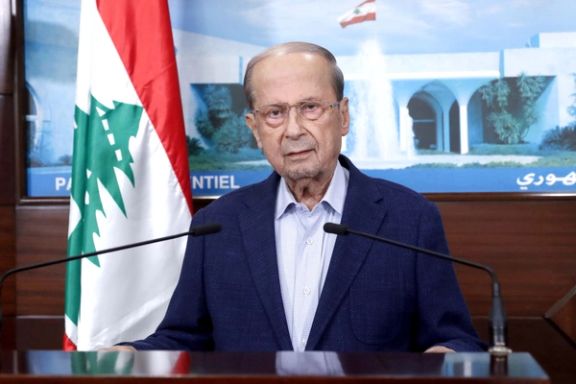
Iran has urged political factions in Lebanon to speed up the presidential elections, distancing itself from its proxy, Hezbollah.

Iran has urged political factions in Lebanon to speed up the presidential elections, distancing itself from its proxy, Hezbollah.
In spite of Iran’s historic interference in Lebanese politics through its backing of the terror group, the regime’s Foreign Minister Hossein Amir-Abdollahian, said: "We will support any agreement that is reached among the Lebanese parties regarding the election of the president.”
Since former president Michel Aoun's term expired on 31 October, there has been no agreement on who shall succeed him.
The Iranian-backed Hezbollah party has supported the nomination of Suleiman Franjieh to be president. Franjieh comes from a noble Lebanese family, and his grandfather was president when Lebanon's 1975-1990 civil war erupted.
In a sidestepping of the regime’s political influence in the country where the economy is on its knees, he said: “We call on foreign countries to support the decision made by the Lebanese without interfering with its affairs."
The distance coming between the regime and Hezbollah, listed as a terror group in countries including the US, UK, Germany, the Arab League and Israel, may be a result of Iran’s recent detente with Saudi Arabia, which had been a vocal supporter of the Arab League’s listing of the group in 2017.
Saudi has also been involved in an eight-year war with another of Iran's proxies, the Houthis, in Yemen.
According to sources quoted in Al-Jumhuriya newspaper, Amir-Abdollahian may ask Tehran's allies in Lebanon to end their support for Suleiman Franjieh's presidential bid because "protecting the renewed relationship with Riyadh has the priority”.
After talks mediated by Chinese President Xi Jinping in Beijing, Iran and Saudi Arabia agreed to restore relations back in March.
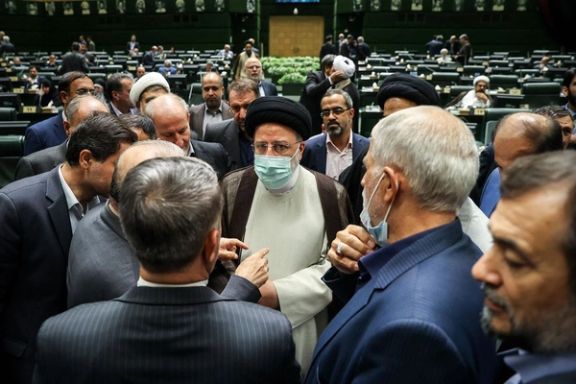
A member of the Iranian parliament's national security committee says 95 percent of lawmakers regret having called on Ebrahim Raisi to run for President in 2021.
Characterizing the Raisi administration as "a generally weak government," Shahryar Heidari told Khabar Online website on Wednesday, April 26 that the lawmakers who advocated Raisi's candidacy in the presidential election wish to apologize to the Majles (parliament) and the nation for their decision.
Heidari particularly criticized the government's economic team and characterized it as "inefficient." He said: "During the past days, Supreme Leader Ali Khamenei told the Majles once again that the country's number one priority is solving economic problems."
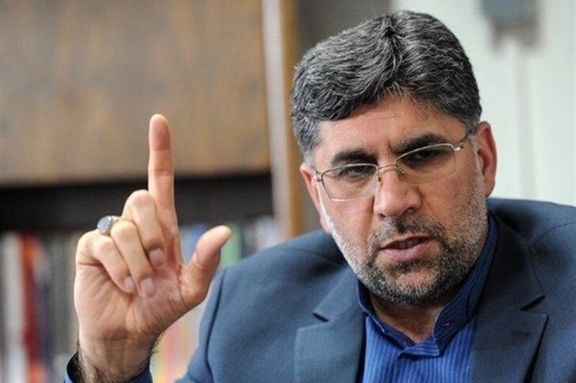
He added that the parliament's criticism of Raisi is mainly about his economic performance. "He needs to reshuffle his economic team and if he fails to do this, the Majles has to do something about it," Heidari said.
Since Raisi took office in August 2021, Iran’s economic crisis has worsened, with the national currency losing half its value, inflation skyrocketing and food prices increasing by at least 70 percent.
Speaking about the planned impeachment of Industry Minister Reza Fatemi Amin, Heidari said he would agree with the motion if he were to be replaced by a more efficient individual, but if someone even weaker than him will take over, the impeachment would be useless.
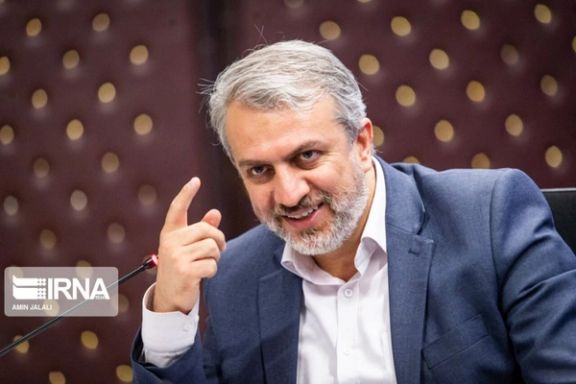
Meanwhile, Ghasem Saedi, a senior member of the parliament told Rouydad24 news website that the government's performance in the area of the economy has ruined individuals' and businesses' psychological security. Saedi added that the government cannot protect its social capital (legitimacy) merely by chanting slogans.
Saedi said that the people have many complaints about their economic and financial problems adding that they are disturbed and angry. He said: "Once we used to say that the people are unhappy about the 30-percent annual inflation rate, but now inflation rises between 10 to 30 percent during one month and this has robbed Iranian families of their power to plan for their lives."
Lawmakers have been telling the government for months that the government's approach to the management of the society's economy is not acceptable, Saedi maintained. The economy has been the country's main problem for at least a decade now, he added. The only way out of the current problem is appointing efficient and intelligent economic officials. The government should not remain hostage to its odd political ideology, he said. However, the question is why inefficient individuals have been appointed to key decision-making positions?
In another development, in line with parliamentary complaints about the inefficiency of government ministers, deputy from Tabriz, Ahmad Alirezabeigi told Rouydad24 that Fatemi Amin, the Industry Minister whose impeachment is on the agenda of the Majles, had earlier given 70 or 75 SUV vehicles to lawmakers to give up their motion to impeach him. However, both Alirezabeigi and Saedi reiterated that this time the members of the parliament are adamant to impeach the minister and remove him from his post.
Alirezabeigi further called on the Majles presidium, that put aside the previous impeachment from the parliament's agenda, to explain whether the vehicles given to some lawmakers were the reason why the impeachment motion did not go further.
Meanwhile, Alirezabeigi dismissed claims by other lawmakers that Khamenei's recent statement about putting an end to disputes between the three powers of the government meant that he had ordered the Majles to stop the impeachment of the Industry Minister.
The lawmakers' heightened attacks on the government, might be a tactic by the members of the parliament to distance themselves from the inefficient government during their last year in the Majles, in a bid to increase the chance of their re-election.
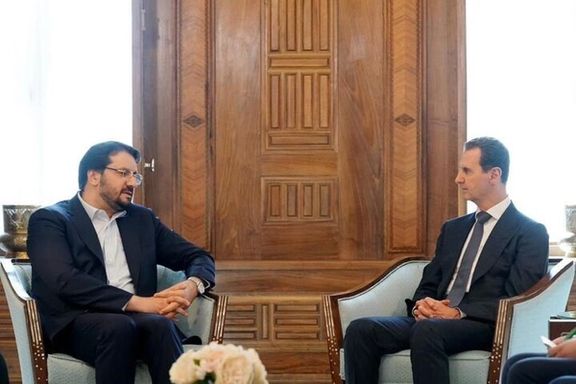
Iran’s Minister of Transport and Urban Development says the time has come to expand trade ties with Syria.
During his meeting with Syrian President Bashar al-Assad in Damascus on Wednesday, Mehrdad Bazrpash called for expanding bilateral cooperation in banking, energy, transit, transportation, and tourism.
Utilizing ports access, Tehran and Damascus can establish shipping lines to boost exports and imports, Bazrpash said, claiming Iran is also ready to train Syrian pilots and develop the Arab country's airports and refineries.
Although Iran has fought for a decade to save the Syrian government, it has a small share of Syria's trade, and is losing out to financially stronger players.
Iran's Revolutionary Guard, which usually tries to justify its involvement in the Syrian conflict, claims that trade and investment in Syria will pay off and compensate billions of dollars Tehran has spent supporting Bashar al-Assad.
The extent of Iranian military expenditures and financial aid to Syria to keep Bashar al-Assad in power is unknown but is believed to have run into billions of dollar at the expense of the Iranian people. Iranian parliament member, Heshmatollah Falahatpisheh, announced in May 2020 that the country had invested $30 billion in Syria and must recoup it.
With reconstruction costs estimated at $250-$400 billion, Syria urgently needs to improve economic ties with regional countries. In the last month, Assad and his aids have met with key figures in countries including the UAE and Turkey as several regional powers see the benefits of bringing Assad, one of Iran's regional puppets, in from the cold.
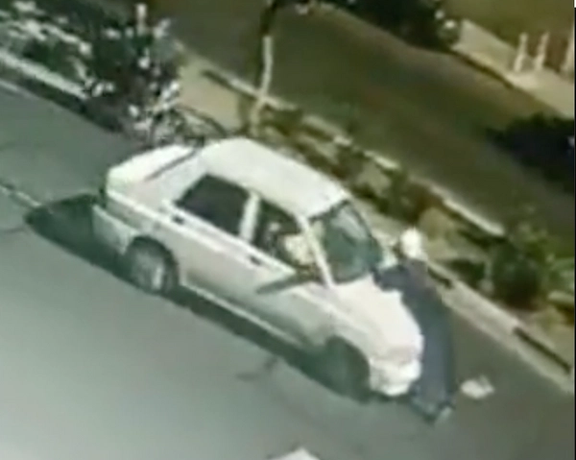
A manhunt by police to find the culprit in the attempted murder of a cleric in Tehran is underway.
After parking his car in Marzdaran Boulevard in Tehran at 9 am on Wednesday, the 35-year-old cleric was the victim of a ramming, police said in a statement.
The culprit fled the scene and the cleric's health state has not been disclosed.
As another sign of rising anger against clerics, a bank guard shot and killed a senior cleric in northern Iran on Wednesday, according to CCTV footage.
Abbas-Ali Soleimani was the most senior clergyman killed in months of unrest that has rocked the country since the death in custody of Mahsa Amini.
State television reported that a man overpowered a guard and shot the cleric, but authorities did not provide a motive for the attack.
In later surveillance footage shared widely by Iranian media, the shooter was seen entering the bank carrying a firearm, milling around briefly, and then shooting Soleimani.
In response to the murder, the Interior Ministry announced that a special investigation will be launched.
Protesters have been targeting clerics in Iran's latest protests. Since the 1979 revolution, the clergy have gained increasing power in Iran, but discontent has risen in recent years, particularly amid waves of protests over economic, political, and civil rights issues.

Iran’s foreign ministry has denied a report by The Wall Street Journal that Tehran has been shipping artillery shells and other ammunition to Russia.
Spokesman of the ministry Naser Kanaani on Wednesday said, Iran is opposed to war and supports a ceasefire and peace in Ukraine.”
WSJ reported that Iran has shipped over 300,000 artillery shells and about a million rounds of ammunition to Russia using cargo ships in the Caspian Sea.
The report published on Monday stated that the weapons were delivered over the past six months, and then sent to the frontlines in Ukraine.
Officials in the Middle East have told the WSJ that the last shipment of weapons to Russia crossed the Caspian Sea aboard the 460-foot Russian cargo ship Rasul Gamzatov in early March. The company owning the vessel has already been sanctioned by the US.
US State Department spokesperson said Monday, “This is – the Russian Federation’s deepening of relations with the Iranian regime also continues to be something that is deeply concerning to us and something that we are continuing to pay close attention to. “
Last summer, Russia turned to Iran for help. Iran initially provided hundreds of kamikaze drones and agreed to provide more than 300,000 artillery shells.
Iran first denied it had supplied drones to Russia but in early November foreign minister Hossein Amir-Abdollahian admitted the deliveries, but claimed they were sent before the Russian invasion.
Several months ago, the United States and other allies of Ukraine said Tehran was ready to send ballistic missiles to Moscow. However, experts say this has not happened yet.
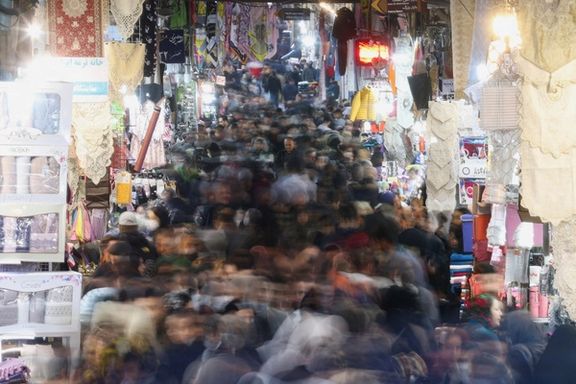
A television debate on liberal and state-control economic principles captivated audiences in Iran this week, as the country looks for solutions to its crisis.
Two university professors, one an ideological proponent of state-controlled “Islamic economy”, and the other, an avid proponent of liberal economic theories, clashed on national TV, often turning the debate into personal attacks.
Masoud Derakhshan, an economist trained in Britain but an Islamist and a leftist by conviction, who believes there needs to be just one “national bank” in the country running all commercial, private and government banking needs. As an Islamic principle, he strongly objects to “usury” and believes all banks end up charging interest, which is forbidden in Sharia.
Except the issue of usury, it is not clear what “Islamic economy” means.
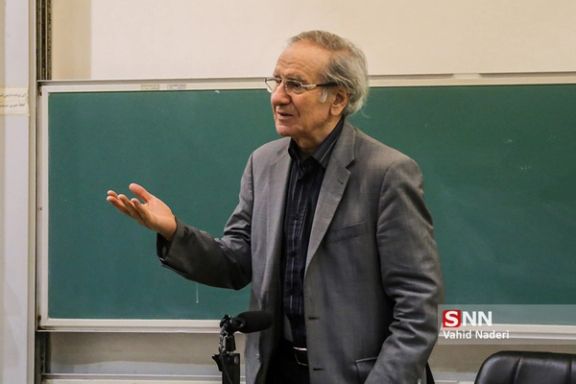
His opponent Mousa Ghaninejad, a professor of economics says, “There is no such thing as Islamic economy,” and believes in the Austrian school of liberal economic theory, personified by the preeminent 20th century philosopher, political scientist, and economic theoretician Friedrich August Hayek (1899-1992).
Ghaninejad argued during the debate that leftist revolutionaries poisoned the new constitution with their economic ideas after the 1979 revolution. Arguing that Iran faces a serious crisis, he insisted that overwhelming government control established since the 1980s turned into a corrupt system of nepotism.
“Islamic Republic’s development model was based on an anti-capitalist theory, while Islam defends private property,” he argued, adding, “Our misfortune was national socialists.”
Derakhshan in a typical mid-20th century leftist manner responded that “Ghaninejad is distorting the Constitution and the Islamic revolution. The theoreticians of liberalism are defending certain ideas to protect the interests of capitalists.”
At this point, Ghaninejad produced three books during the show, published in the early days of the revolution by the Communist Tudeh Party of Iran, to prove that leftists influenced the Islamic Constitution in its economic precepts. He also argued that President Abolhassan Banisadr, whom he described as a leftist, and the ideas of Islamist-Marxist Ali Shriati had a profound impact on the Constitution.
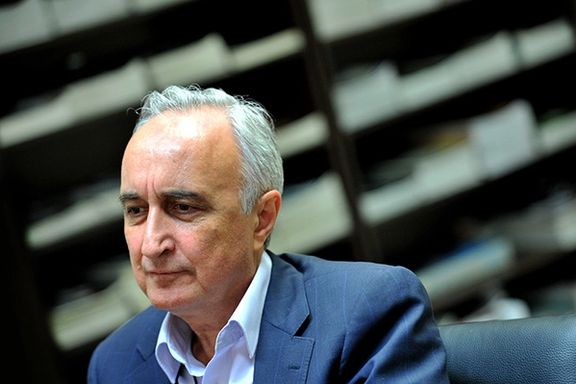
He went on to say that Liberals are all for competition – something that has been completely stifled in Iran – and as a matter of fact, he argued that as a capitalist gets much richer, he also opposes competition, because he wants to dominate the market.
“Our economy is a politicized economy of nepotism,”Ghaninejad stated, referring to politicians and factions presiding over the government that controls 80-percent of the economy and distributes monopolies and quasi-governmental companies between friends and family. These companies lose a lot of money, but the government-appointed managers get rich.
There is also the phenomenon of shady privatization when government assets I sold at a fraction of their real price to well-connected people.
The Islamist Derakhshan passionately argued that there is no self-sustaining free market, and this is purely a deception. Iran’s economy must be an Islamic economy he insisted, while not responding to his opponents argument that private property and commerce are protected rights in Islam.
Ghaninejad, in an apparent attempt to be politically correct, said he acknowledges that the United States is a dominance seeking power and inflicted huge pain and suffering on Vietnam, much greater than anything it has done to Iran, but today, the US and Vietnam have amicable relations. However, “We unnecessarily dug a hole for ourselves at the beginning of the revolution when leftist Islamists occupied the American embassy.”
Condemning the US sanctions against Iran, the liberal economist said, “To the extent that America’s economy is based on competition I am an advocate of it, but when capitalism becomes political, I oppose it, because it violates liberalism.”